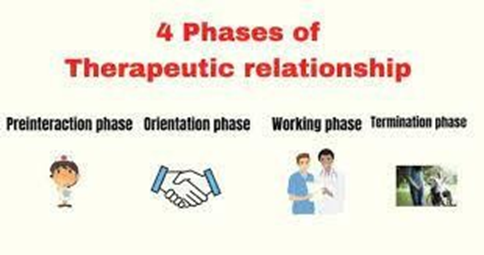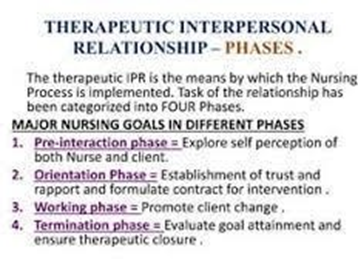A male inpatient client who is experiencing depression has no interest in eating. He skips meals frequently and has been losing weight. What is the best nursing action in this situation?
Leave food with the client at mealtime and offer snacks frequently
Give the client information on the benefits of good nutrition
Ask the client to "Please eat one meal for me."
Remove client privileges every time the client doesn't eat
The Correct Answer is A
Choice A rationale: this is correct since it provides the patient with an opportunity to eat his meals freely whenever they are ready to eat without feeling pressured or threatened.
Choice B rationale: the patient already knows about the benefits of good nutrition but still lacks the motivation to eat owed of his depression hence this may not be very helpful in this situation.
Choice C rationale: this may make the patient feel manipulated and guilty for not eating hence may not be helpful in addressing the underlying situation.
Choice D rationale: this may worsen the patient’s depression and lower their self-esteem since they will receive punishment for their condition rather than being offered the necessary help.
Nursing Test Bank
Naxlex Comprehensive Predictor Exams
Related Questions
Correct Answer is C
Explanation
Choice A rationale: fats are directly related to lithium therapy and does not require any special monitoring during the drug’s intake.
Choice B rationale: proteins do not affect the blood levels of lithium hence they do not require any special monitoring during the drug’s intake.
Choice C rationale: Lithium is a salt that can affect the fluid and electrolyte balance in the body and competes with sodium for their reabsorption in the kidneys.
Therefore, if the client consumes too much or too little sodium, it can alter the level of lithium in the blood and cause toxicity or ineffectiveness hence the need for close monitoring.
Choice D rationale: potassium does not affect the blood levels of lithium hence no special monitoring during intake is required.
Correct Answer is B
Explanation
Choice A rationale: this is the phase where the caregiver and client establish a rapport by introducing themselves while clarifying their roles and expectations. The caregiver also explains the purpose, scope, and limits of the services they provide.
Choice B rationale: the preparation phase occurs before the client and the caregiver meet and involves the care provider reviewing the client’s information, identifying their needs, and planning for their first contact.
Choice C rationale: This is the phase where the caregiver and the client end the therapeutic relationship, evaluate the outcomes, and plan for follow-up or referral.
Choice D rationale: this phase involves the caregiver and the client implementing interventions, monitoring their progress, and modifying their goals as needed to achieve their set objectives.


Whether you are a student looking to ace your exams or a practicing nurse seeking to enhance your expertise , our nursing education contents will empower you with the confidence and competence to make a difference in the lives of patients and become a respected leader in the healthcare field.
Visit Naxlex, invest in your future and unlock endless possibilities with our unparalleled nursing education contents today
Report Wrong Answer on the Current Question
Do you disagree with the answer? If yes, what is your expected answer? Explain.
Kindly be descriptive with the issue you are facing.
